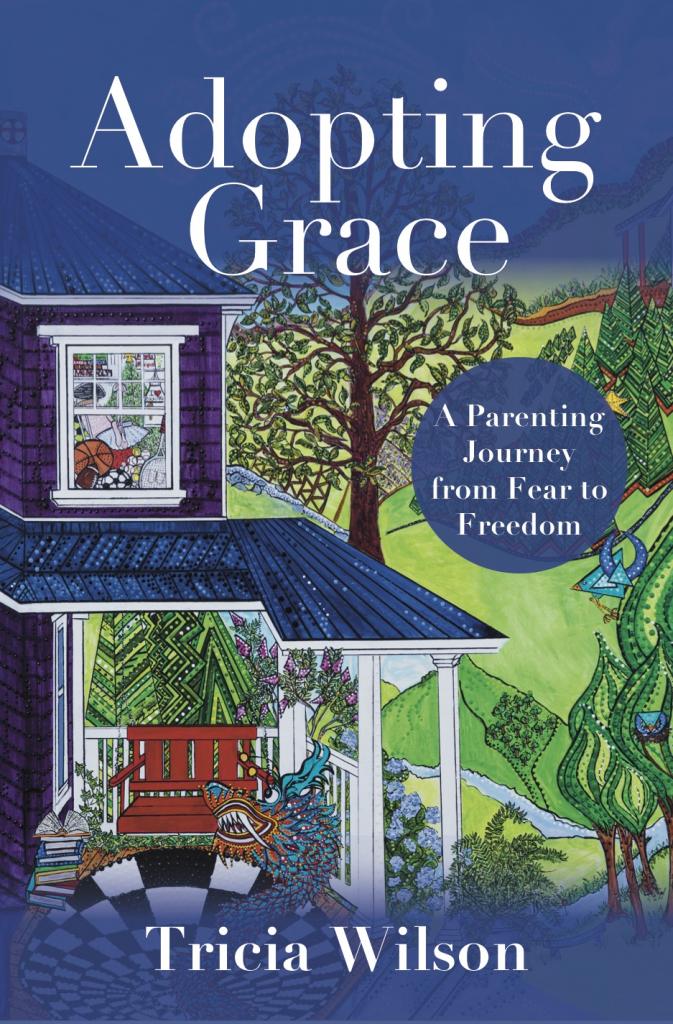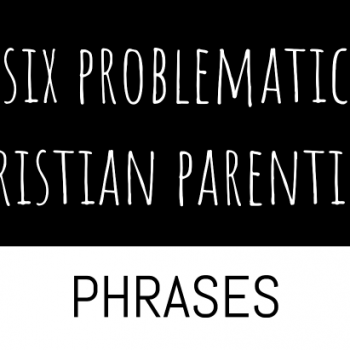An excerpt from the book Adopting Grace: A Parenting Journey from Fear to Freedom

As I continued to travel down a road of both parenting and faith shifts, it became clear that I didn’t understand a great deal about feelings and emotions. I realized that when I parented my sons, I considered their expressions of certain feelings as out of bounds. My response to normal human emotions such as anger, frustration, jealousy, and the like was often to label them as disrespectful, disobedient, or shameful.
My goal was to prompt each child to shut down strong reactions as soon as possible, or better yet repress them altogether. I needed to reexamine the corporal punishment and timeout/microwave timer strategies that I used with my boys. Conservative Christian parenting advice often includes the idea that children must obey at first command, and there is a subsequent harsh punishment or isolation if they do not comply. Timeout, corporal punishment, and removal of privileges are touted as appropriate reactions to a child’s expression of any “negative” emotion. As I became more fully educated about normal child development, I further questioned the wisdom and truth of the parenting practices I had embraced.
I had to ask and answer a series of important questions: Is there a distinction between “positive” and “negative” emotions? Aren’t all feelings a part of being human? Why is any kind of “negative” emotional expression immediately deemed as disrespect and something to be squashed ASAP? Why do I seek to control rather than lovingly teach and mold my children’s behaviors? Why do I default to shame and fear tactics to keep my children in line? Sure, kids who are immediately compliant make my life easier, but isn’t there something more profound to model and teach these precious souls in my care?
I had hit a wall in parenting my girls. The methods that I had used with my sons were only intensifying problematic behaviors that were happening with our daughters. I was clearly “out of my league.” The discipline tools I reached for were like throwing gasoline on a fire. And we were just in the toddler stage of life. I was well aware that there was a long road of parenting ahead.
From a faith perspective, my questions multiplied as well. What is inherently “Christian” about spanking and punishment? Why did I insist that our children meet a standard that I was unable to meet without the gifts of mercy and grace? A major tenet of the Christian faith is that human beings have free will. God does not force us to love, follow, or obey. Though it seems that there are natural consequences that flow out of our choices, God rarely, if ever, flexes big muscles and forces us to walk a certain path. Grace is the overarching story between God and human.
The promise that we can control anyone other than ourselves is quite prevalent as we look around at the voices and practices in much of the parenting advice world. This is a myth. Control by definition requires a level of fear and intimidation. Yes, for a time, we are bigger and stronger than our children, and on some level can force them to do certain things. But did I really want fear-based compliance? As I gradually woke up to the detrimental effects of strict parenting methods, my answer to this question became “no.”
One of our daughters regularly reminds me of a difficult truth of our relationship when she says, “You can’t make me do anything.” In former days, I would have preached a mini-sermon and doled out a punishment if a child interacted with me like this. After years of reprogramming my parental brain, I reach for different tools. I give honor to the emotions around such encounters, remind her that in our family we can express anything as long as we are respectful of one another, and then we take the necessary time and intention to work through the core feelings in each tantrum or disagreement. Sometimes we have to separate for a period of time and then return to the matter at hand. Each of us is granted a “time-out” to process our emotions – my own response is most often to practice deep breathing and get myself in a calmer state. This approach certainly takes more time than doling out a rash and sometimes random consequence, but it also preserves connection and intimate relationship between mother and child. When appropriate, I communicate natural consequences as one portion of a holistic discipline approach.
As hard as it is to admit at times, my daughter’s assessment that I can’t make her do anything is correct. Her expression of this reality used to send me to a place of great anger, frustration, and then a “digging in” around an attempt to prove her wrong. Though I sometimes still protest internally, I have surrendered to the truth of her words. I now respond with honesty. “You are right. I can’t make you do anything. But I hope that you will choose to do this thing that is safest and healthiest for both you and our family.” These days, she most often does.
For a while, I lived in the fantasy that I actually controlled my children, their emotions, and their choices. But the raw truth is this: the only one that I can truly manage is myself. There are unhealthy fear based tactics such as brute force (which is only available for a time since they will grow up and become stronger than me), manipulation, and shame that I can attempt to deploy as I navigate the discipline of our kids. The reality is that such methods don’t even work that well to control the behavior of many children. Even more importantly, they cause short and long term damage to tender souls as well as to parent-child relationships.
I have decided that I am in this for the long haul. I choose connection and the preservation of a healthy relationship over doing all in my power to get my kids to behave in ways that make me most comfortable. When I acknowledge the reality that each of my children is a separate individual soul and not an extension of me or my ego, the level of my comfort around their behavior and choices becomes irrelevant. I am able to see challenges and bumps along the road as opportunities for both me and my child to learn and grow. We are each free to be ourselves and take delight in our differences as well as our shared characteristics and viewpoints. My job is to coach and teach them as they develop and move toward independence.
After years of practicing a parenting paradigm heavy with punishment, I have come to believe that there is a better approach in the training and teaching of a child. A simple, yet far from easy, way to express this change in parenting perspective is a shift from fear to love. In John’s first epistle, he said it this way: “There is no fear in love. But perfect love drives out fear, because fear has to do with punishment. The one who fears is not made perfect in love. We love because God first loved us.” I, for one, am grateful that God doesn’t use a traditional parenting method with me. I need all the grace I can get.
Tricia Wilson began her motherhood journey over thirty years ago, and amidst the ups and downs of parenting three biological sons and two adopted daughters, she overhauled both her parenting and faith perspective and practice. She has now found what she was looking for: grace and peace as a mom, wife, friend, and human being. She is a Circle of Security International Parenting Facilitator and lives in Raleigh, North Carolina. Tricia can be found online at www.tricia-wilson.com.
Get a free download of a Christian parenting manifesto that helps us guide children into healthy spirituality + a guide on How to Raise a Feminist Son + the most helpful parenting resources with progressive values.












